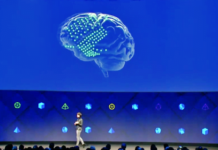
In today’s fast-paced and technologically advanced world, it is becoming increasingly important to prioritize mental health. The constant exposure to screens, the pressure to be constantly connected, and the demands of an always-on lifestyle can all take a toll on our well-being. However, with a few simple strategies, it is possible to take care of our mental health in this modern technological era.
1. Establish boundaries with technology:
While technology has undoubtedly made our lives easier in many ways, it is crucial to establish boundaries to prevent it from negatively impacting our mental health. Set specific times to disconnect from devices and create tech-free zones in your home. This will allow you to have dedicated time for relaxation, self-reflection, and connecting with loved ones.
2. Practice mindfulness and self-care:
Incorporate mindfulness practices into your daily routine to help manage stress and improve overall mental well-being. This can include activities such as meditation, deep breathing exercises, and yoga. Additionally, prioritize self-care activities that promote relaxation and rejuvenation, such as taking baths, reading a book, or engaging in hobbies that bring you joy.
3. Prioritize quality sleep:
The blue light emitted by screens can disrupt our sleep patterns, leading to fatigue and decreased mental clarity. Create a bedtime routine that includes turning off electronic devices at least an hour before sleep. Establish a calming routine before bed, such as reading a book or listening to soothing music, to signal to your body that it is time to unwind and prepare for restful sleep.
4. Foster real-life connections:
While social media and online communication platforms have made it easier to connect with others, it is important to prioritize face-to-face interactions. Spending quality time with loved ones, engaging in meaningful conversations, and participating in social activities can significantly improve mental well-being. Make an effort to schedule regular meetups or outings with friends and family to foster deeper connections.
5. Set realistic expectations:
The constant exposure to curated versions of other people’s lives on social media can lead to feelings of inadequacy and low self-esteem. It is essential to remember that what we see online is often a highlight reel and not an accurate representation of reality. Set realistic expectations for yourself and focus on your own progress and growth rather than comparing yourself to others.
6. Take breaks from technology:
Regularly disconnecting from technology can help reduce feelings of overwhelm and improve mental clarity. Set aside specific times throughout the day to take breaks from screens, whether it’s during meal times, outdoor activities, or designated “tech-free” hours. Use this time to engage in activities that bring you joy and allow your mind to rest and recharge.
7. Seek professional help if needed:
If you find that your mental health is significantly impacted by the modern technological era, do not hesitate to seek professional help. A mental health professional can provide guidance, support, and strategies to help you navigate the challenges of this digital age. They can also help you develop coping mechanisms and establish healthy habits that promote overall well-being.
In conclusion, taking care of our mental health in the modern technological era is crucial for our overall well-being. By establishing boundaries with technology, practicing mindfulness and self-care, prioritizing quality sleep, fostering real-life connections, setting realistic expectations, taking breaks from technology, and seeking professional help if needed, we can navigate this digital age while maintaining our mental well-being. Remember, it is essential to prioritize self-care and make conscious choices to protect our mental health in this fast-paced world.






















































